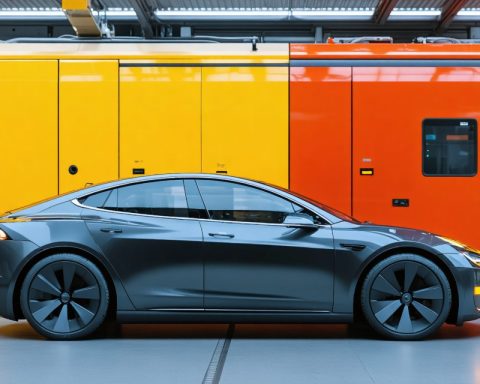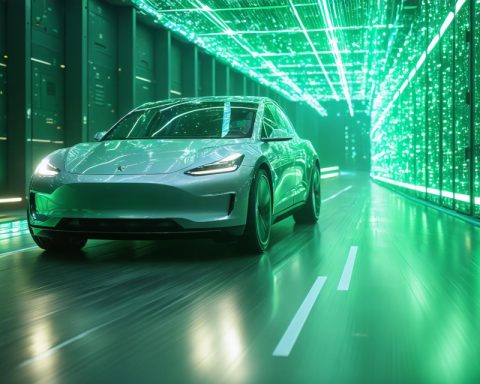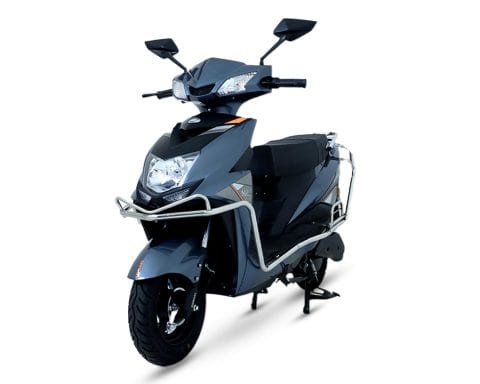A revolutionary front hub-based security system for e-bikes is set to provide enhanced protection and peace of mind for owners. Developed through a partnership between Comodule and 2Lock, the cutting-edge system can be activated and deactivated with a simple tap on a corresponding mobile app, offering convenience and streamlined security.
Traditional locks have been the go-to solution for securing e-bikes, but they are not always foolproof. Recognizing this, Comodule and 2Lock joined forces to create a double-lock system that incorporates digital security features. This innovative system aims to make bike theft obsolete by introducing additional layers of protection.
The new security system, set for a pre-series launch in 2025, is expected to revolutionize e-bike security. According to 2Lock, a bicycle is stolen every minute in Germany due to the vulnerability of traditional locks to simple tools. The hub-based system developed by 2Lock provides a unique approach, immobilizing the bike by blocking the removal of the thru-axle. This prevents the bike from being wheeled or ridden away, greatly reducing the risk of theft.
Complementing the physical security measures, Comodule’s companion app adds an additional layer of protection. The app allows users to wirelessly activate and deactivate the lock, eliminating the need for physical contact. Additionally, the app incorporates a security system that automatically detects theft attempts. If an e-bike is targeted, the system responds by activating an alarm, immobilizing the drivetrain, locking the wheel, and sending the bike’s location to the app.
The combination of physical and digital security measures not only deters thieves but also boosts consumer confidence. Insurance companies are increasingly demanding security add-ons, and the advanced features of this system can potentially lead to lowered insurance rates for e-bike owners.
With the alarming rise in e-bike thefts, this innovative security system has arrived at a crucial time. In the UK alone, recorded e-bike thefts doubled in 2023 compared to the previous year, highlighting the urgency for improved security solutions.
As e-bikes continue to gain popularity, it is essential to invest in reliable measures to protect these valuable assets. The front hub-based e-bike security system developed by Comodule and 2Lock is a significant milestone in providing comprehensive protection and ensuring peace of mind for e-bike owners.
The e-bike industry has been experiencing rapid growth in recent years, with more and more people opting for electric bikes as a sustainable and efficient mode of transportation. This growth has also led to an increase in thefts of e-bikes, prompting the need for more advanced security solutions.
According to market forecasts, the global e-bike market is expected to reach a value of $46.04 billion by 2025, growing at a CAGR of 7.3% from 2018 to 2025. This projected growth presents a significant opportunity for companies like Comodule and 2Lock to offer innovative security systems that meet the demands of e-bike owners.
One of the key issues related to the e-bike industry is the vulnerability of traditional locks to theft. Conventional locks are often easy to break or pick, making it relatively simple for thieves to steal e-bikes. The double-lock system developed by Comodule and 2Lock addresses this issue by combining physical and digital security measures.
The hub-based security system developed by 2Lock is particularly noteworthy. By blocking the removal of the thru-axle, the system immobilizes the bike, making it nearly impossible to wheel or ride away. This unique approach significantly reduces the risk of theft and sets it apart from traditional locks.
In addition to the physical security features, Comodule’s companion app adds an extra layer of protection. With the app, users can wirelessly activate and deactivate the lock, eliminating the need for physical contact with the bike. The app also includes a theft detection system, which triggers an alarm and immobilizes the drivetrain and wheel if a theft attempt is detected.
The advanced features of this front hub-based security system have the potential to not only deter thieves but also attract the attention of insurance companies. As insurance companies increasingly demand security add-ons, the comprehensive protection offered by this system could lead to reduced insurance rates for e-bike owners.
Given the alarming rise in e-bike thefts, this innovative security system comes at a crucial time. In the UK alone, recorded e-bike thefts doubled in 2023 compared to the previous year. This trend highlights the urgency for improved security solutions in the e-bike industry.
Overall, the front hub-based e-bike security system developed by Comodule and 2Lock is a significant advancement in protecting e-bikes from theft. With the industry projected to grow in the coming years, investing in reliable security measures is essential to ensure the continued success and peace of mind for e-bike owners.
To learn more about the e-bike industry and the growing market, you can visit MarketsandMarkets.












